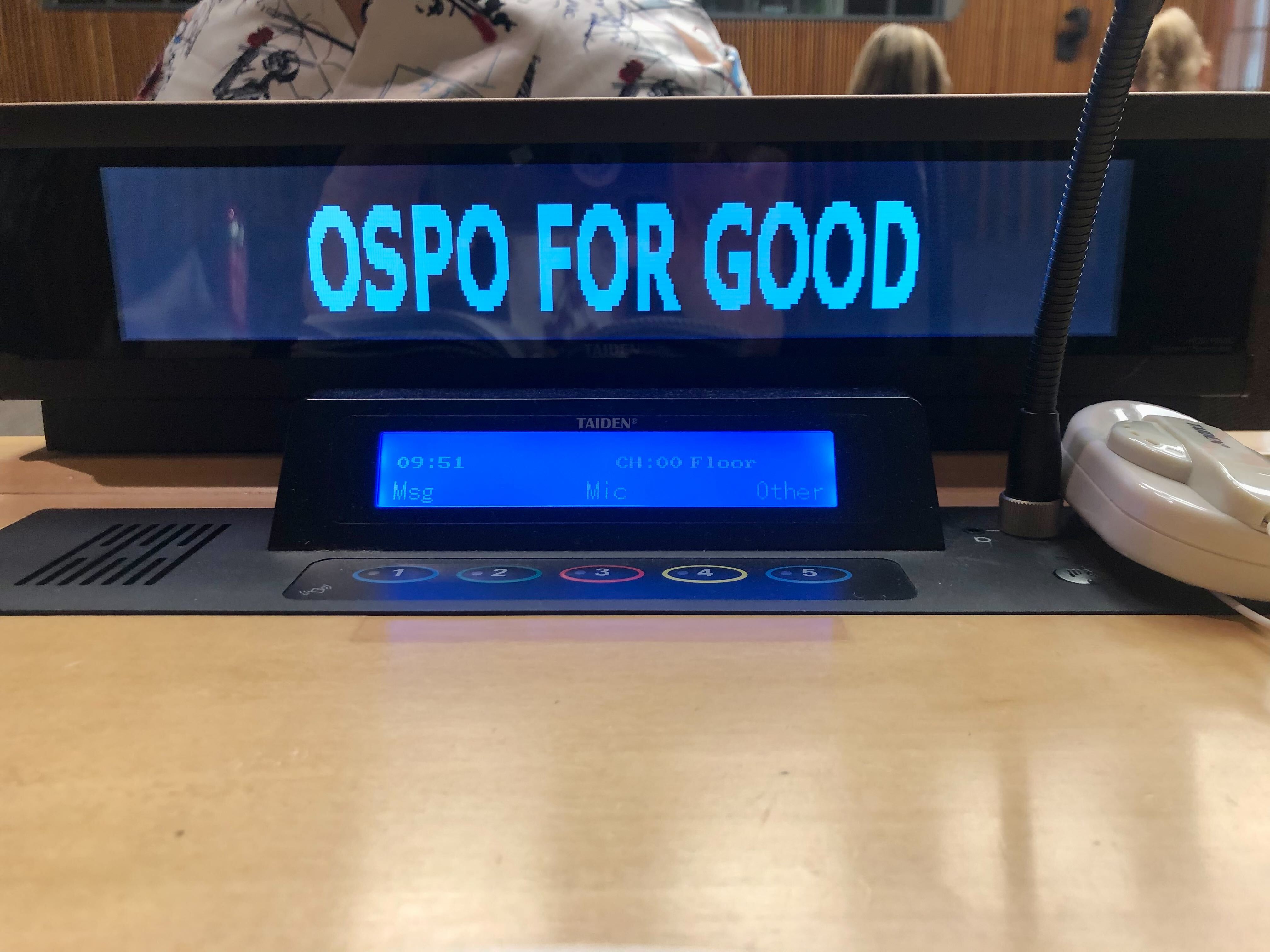Global efforts to strengthen open source concepts – Insights from the OSPO conference at the United Nations

Last week, the second edition of the conference Open Source Programme Offices for Good (#OSPOsForGood) took place in New York. At the invitation of the United Nations (UN), around 450 open source enthusiasts from all over the world traveled to the event - a huge success for the organizers, as there were around 80 participants in 2023. It was about nothing less than the role of open source software in achieving the Sustainable Development Goals - i.e. saving the world, the UN’s core task.
The United Nations have only recently discovered the topic of open source software for themselves. Late, but with noticeable enthusiasm across many UN organizations and programs. The positive spirit of optimism was omnipresent. In terms of content, however, there was little new to learn. The UN conference style also took some getting used to - unctuous greetings, pathetic visions of world peace and global call-to-actions for better coexistence followed one another. Unfortunately, there were no sessions for interaction and discussion. Nevertheless, it was an exciting event that was very rewarding for several reasons.
When the United Nations invite, everyone comes (if they can afford it)
The conference counted participants from government representatives, international organizations, tech communities, academic communities, foundations, think tanks, business representatives, activists - and from many countries around the world. Such a diverse range of stakeholders and interest groups rarely come together to discuss tech topics. Exchange and networking across sectors and countries is relevant for strengthening a desirable global open source movement. The United Nations must make even better use of this networking potential (e.g. through coffee breaks, interactive breakout sessions, shared list of participants). There should also be travel grants for civil society to enable participation.
Open source software is much more than code
The conference was all about the big picture. No drifting off into technical minutiae, no fussing about higher efficiency and lower costs through open software. The UN manages to tell the story of open source software in a big way: Open software is an important part of a solution, the achievement of the Sustainable Development Goals. This narrative is necessary and very helpful in bringing open source from the tech scene into the political sphere - on the world stage. Open source software is much more than just code. Software is a mirror of our societies and shapes the way we live together to an unimagined extent - “software is eating the world” is often said. What we put into code is relevant for all of us, it is decisive for which direction we take as a society and what priorities we set. The analogies between the goals and values of the open source community and those of the UN - working inclusively, participatively and collaboratively, promoting sustainability, preferring long-term solutions, building adaptable approaches for local communities, strengthening self-efficacy and developing skills - are obvious. It is almost surprising that the United Nations have only now discovered this topic for themselves.
Slow but long-term oriented
The many high-ranking representatives of the United Nations and its many programmes and sub-organizations make it very clear that the commitment is serious and that the conference is just the beginning. The aim and plan is a long-term commitment to open source software and the long-term development of the necessary infrastructure. UN agencies are now working on this under high pressure. This gives us hope that this will create movement worldwide and in the near future.
For next time: More depth is needed
Conferences are always a place for self-assurance. It became clear that a large number of participants across all sectors face similar challenges when implementing open source approaches: The search for good and scalable examples, internal competence building, overcoming silo thinking, the lack of models for the long-term financing of infrastructure and the lack of international standards for the exchange of data are current examples. The dilemma that open software is being used more and more widely, but the development and maintenance structures behind it are not equally supported and promoted, was also repeatedly addressed. So there is still plenty to discuss at the next OSPO conferences.